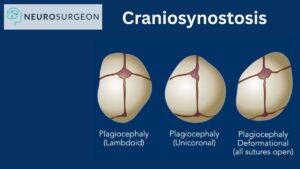In spinal surgery, particularly in the form of Minimally Invasive Spine Surgery, medical technology has advanced significantly in recent years. This ground-breaking approach to spinal treatments has completely transformed how we treat various spine-related illnesses.
MISS, or minimally invasive spine surgery, has many advantages over conventional open procedures. We will discuss significant benefits of choosing minimally invasive spine surgery in this article.
Table of Contents
ToggleMinimally Invasive Spine Surgery
Minimally Invasive Spine Surgery (MISS) is performed on the bones of your spine (backbone). SmalL-operated incisions are used in this sort of surgery than in standard surgery. This frequently results in decreased damage to surrounding muscles and other tissues. It may result in lowered discomfort and a quicker recovery following surgery.
Open surgery is the most familiar type of spine surgery. A large incision along the back is used for this. The muscles and soft tissue surrounding the spine would have to be repositioned. Tissue would have to be removed in some circumstances.
What Types of Spine Surgeries Performed Using (MISS)
A minimally invasive method can perform several types of spine surgery. These are some examples:
- Spinal Fusion Is a Procedure That Is Frequently Used to Treat Degenerative or “Slipped” Discs.
- Correction of Defects, Such as Scoliosis and Kyphosis.
- Decompression of Spinal Tumors.
- Vertebral Compression Fractures Are Repaired and Stabilised.
- Lumbar Spinal Stenosis.
- Infection in the Spine.
Why I Need Minimally Invasive Spine Surgery
Most persons with back pain will not require surgery. If you have a back problem that hasn’t improved through traditional treatments, such as medication or physical therapy, your doctor may recommend spine surgery.
If you are still in a lot of discomfort, spinal surgery can help. However, spine surgery cannot treat all forms of back issues. Neurologist in Indore will only recommend spine surgery if you have a problem that surgery may treat. This includes conditions like:
- Disc Herniation
- Spinal Stenosis (Spinal Canal Narrowing)
- Scoliosis and Other Spinal Abnormalities
- Instability of the Spine
- Spondylolysis Is a Defect in the Lower Vertebrae.
- Vertebral Fracture
- Surgical Removal of a Spine Tumour
- a Spinal Infection
If you are considering spine surgery, ask Neurologist in Indore if Minimally Invasive Spine Surgery is an option. MISS cannot be used for all types of spine surgery. Furthermore, not all hospitals or other surgical facilities are MISS-ready.
Benefits of Minimally Invasive Spine Surgery
Faster Recovery Time
The much-reduced recovery period is one of the most noticeable advantages of Minimally Invasive Spine Surgery. Traditional open surgery often requires lengthy hospitalization and weeks to months of recovery.
MISS, on the other hand, permits patients to return to their everyday activities considerably faster. Many patients can leave the hospital in a day or two and resume modest activities within weeks, allowing them to return to their usual lives sooner.
Reduced Pain and Discomfort
Minimally invasive spine surgery’s efficacy in reducing post-operative pain and suffering is well known. The surrounding muscles and nerves are less damaged because of the smaller incisions and less tissue damage. Patients often have less discomfort and require fewer pain medications after surgery, resulting in a more comfortable healing process.
Lower Infection Risk
Minimally Invasive Spine Surgery reduces the risk of infection. Smaller incisions minimize the possibility of bacteria entering the body, and the faster healing time further reduces this danger. This improves the patient’s health and lessens the strain on the healthcare system.
Minimal Scarring
Large incisions in traditional open surgery often result in visible marks. Minimally Invasive Spine Surgery, on the other hand, leaves little marks. Smaller incisions are usually less than an inch long and precisely arranged to be less noticeable—patients who want to keep their appearance value this aesthetic advantage.
Preservation of Spinal Function
The preservation of spinal function is critical in any spine operation. Because it causes less damage to the surrounding tissues and muscles, Minimally Invasive Spine Surgery shines in this area. This results in improved spinal stability and function, lowering the likelihood of long-term problems.
Customized Approach
Another benefit of MISS is its capacity to provide an approach personalized to each patient’s spinal condition. Advanced imaging allows Neurologist in Indore to visualize the specific problem and adjust the surgery accordingly. This personalized treatment leads to better outcomes and a greater chance of addressing the exact condition causing pain or discomfort.
Less Blood Loss
Minimally Invasive Spine Surgery is connected with much less blood loss throughout the treatment due to the smaller incisions and minimal tissue damage. This not only helps to a safer surgical experience but also minimizes the need for blood donations, sometimes required during open surgery.
Improved Quality of Life
Finally, the advantages of Minimally Invasive Spine Surgery result in patients’ higher quality of life. Individuals can regain mobility and independence sooner because of the speedier recovery, reduced discomfort, minor scarring, and intact spinal function. This, in turn, improves their overall well-being and mental health.
Conclusion
Minimally Invasive Spine Surgery has revolutionized the landscape of spine treatments, providing several advantages that vastly improve the patient experience. MISS is a historical marker of medical technology’s development, from improved recovery times to reduced pain and scarring.
While specific circumstances must be considered, as well as consultation with a Neurologist in Indore, the benefits of Minimally Invasive Spine Surgery make it an appealing alternative for people seeking relief from spinal disorders.


















